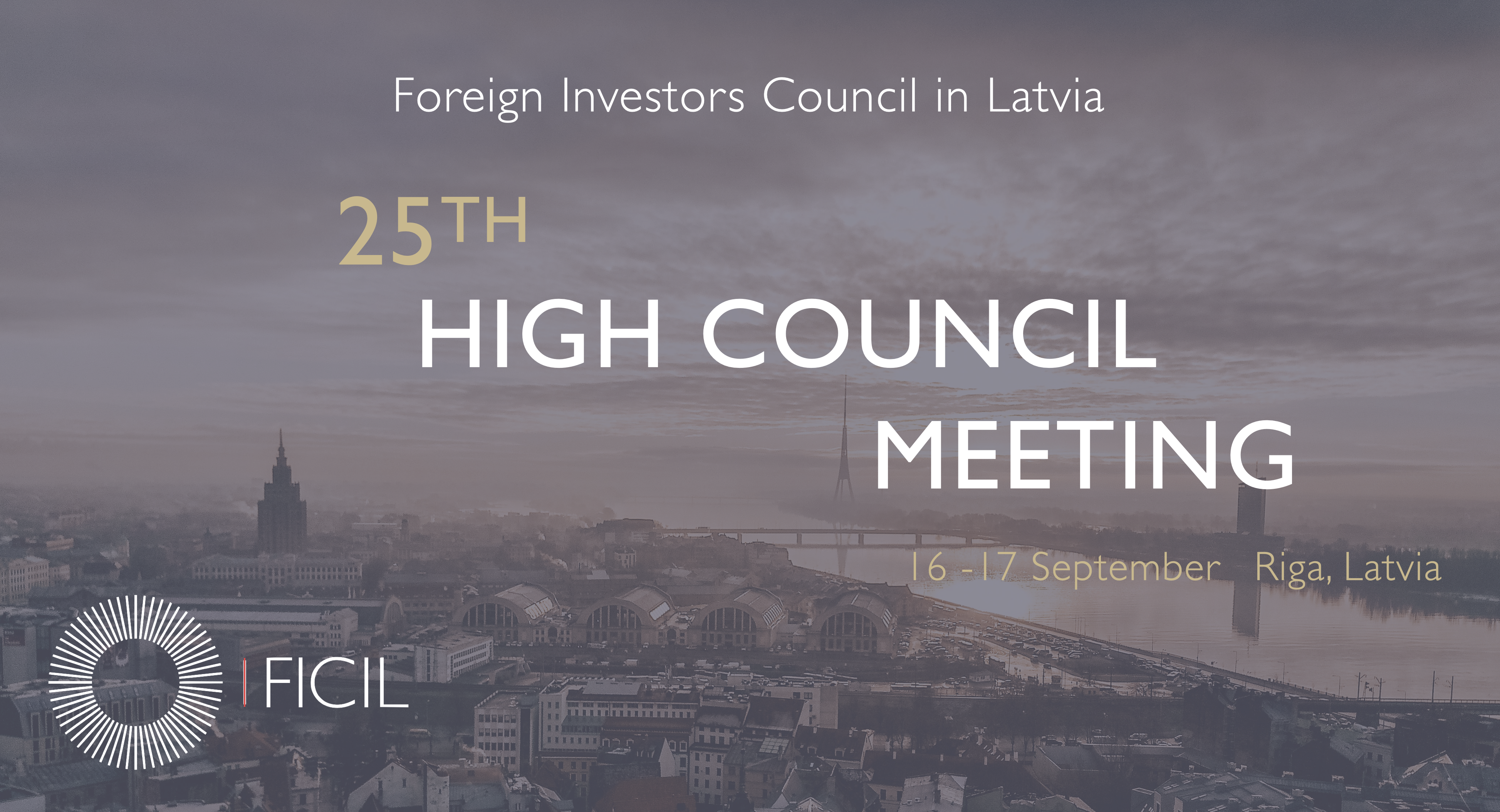On September 16-17, FICIL and the government of Latvia will hold the 25th High Council meeting. The High Council is a top-level discussion forum between foreign investors and the government. The goal of it is to facilitate structured exchange of information and views between major foreign investors and the national policymakers.
In preparation for the High Council, FICIL’s work groups draft their position papers, which highlight the most relevant issues and challenges across various policy areas. The position papers are submitted to the policy makers and serve as the basis for discussions during the two-day event. This year, FICIL has prepared 11 position papers on the following topics:
- Macroeconomic policy issues
- Green economy development
- Digitalisation
- Labour force issues
- Higher education and re-qualification
- Investment protection and court efficiency
- Combating economic and financial crime
- Tax policy and administration
- Intellectual property protection
- Food and drink industry issues
- Transport and infrastructure issues
As the global trends have put governments across the world at crossroads regarding the steps they want to take to address the existing and looming challenges, FICIL’s position papers remind that the decisions Latvia makes today will significantly shape its investment climate over the next decade and beyond. Importantly, action must be taken already now as any delay will have an adverse effect on Latvia’s competitiveness in the long-term. Given the influx of funds from the European Union’s Recovery and Resilience Facility, FICIL believes that this is the right time to invest in forward-looking reforms that are aimed at achieving a major breakthrough in strengthening Latvia’s position in the region.
European Union’s Green Deal and how Latvia will approach it is one of the key challenges addressed in the position papers.
FICIL believes that there is a need for a detailed action plan on how to reach the green targets in order to bring clarity for investors regarding the country’s prioritised direction. In addition, Latvia’s future competitiveness relies heavily on how the government prioritises the country’s digital transformation. While the ambition is already there, success depends on a synchronised strategy across the entire public sector, the availability of ICT specialists, and support to companies in their digital advancement. Labour force policy will play a great role in determining whether Latvia will be able to bridge the ever-increasing skills gap and ensure that the sectors which the policy makers would like to develop will be able to hire people with the required skillset.
Although each of the 11 position papers focuses on a different policy field, there are common themes and issues that span across all of the sectors. For example, FICIL calls for a long-term approach in policy making to ensure consistency and reliability in government decisions. Furthermore, these decisions should be based in data and in-depth analysis. This, in turn, requires a clear and well thought-through data policy that promotes acquisition and availability of high-quality data. This is important to improve the quality of the legislation process, where investors would like to see more transparency and clarity over the rules and the actual goal of changes in regulation.
Also, the position papers highlight that in many areas policy making is too fragmented, which leads to incompatible priorities for various stakeholders, unclear end goals and lack of accountability over the results. More centralised governance would also be beneficial in improving the efficiency of the public sector as it would allow to pool resources and create competence centres. Finally, it would also give more agility to react to changing trends, reduce bureaucracy and ensure a swift response to market needs.


